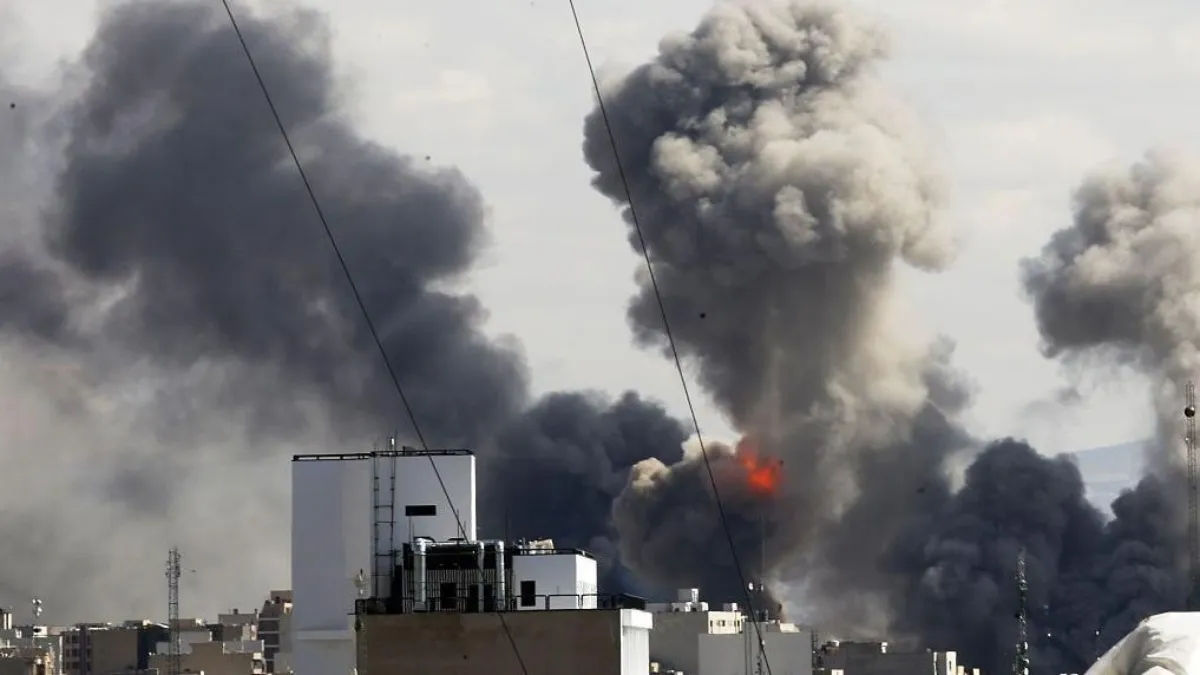Venezuelan Popular Movements Voice Iran Solidarity, Gov’t Deletes Controversial Statement
Venezuelan authorities have offered no explanation on the withdrawn statement. (Anadolu Agency)
Mérida, March 2, 2026 (venezuelanalysis.com) – Venezuelan popular movements condemned the recent US and Israeli attacks against Iran and expressed support and solidarity with the West Asian nation.
On Saturday, February 28, the International Platform for Solidarity with the Palestinian Cause and the Alexis Vive Patriotic Force were among the organizations issuing statements rejecting Washington and Tel Aviv’s military actions.
The organizations decried the bombings of Iranian territory, including against civilian targets, and described the operations as serious violations of international law. The International Platform for Solidarity with the Palestinian Cause expressed “deep outrage” over the bombing of a girls’ school in Minab that killed over 175 people.
“This infamous act will not crush the heroic resistance of the Iranian people, in their example of dignity in the face of imperialist and zionist aggression,” the platform’s communiqué read.
For its part, the Alexis Vive Patriotic Force emphasized that the latest attacks are not an isolated incident, but rather “another attempt to impose regime change and undermine Iran’s self-determination.”
“These actions seek to reconfigure the political map of Western Asia in favor of the strategic interests of Washington and Tel Aviv,” the organization, a driving force in El Panal Commune in Caracas, added in its statement.
The Venezuelan chapter of Alba Movimientos, a continental alliance of social movements, likewise issued a statement declaring “unrestricted solidarity” with Iran and calling on multilateral organizations to deter the US and Israel’s “warmongering.”
Venezuelan grassroots organizations scheduled a rally on Tuesday in front of the Iranian embassy in Caracas to reiterate their support and condemnation of the foreign aggression against the country.
West Asia has been thrown into open conflict after the US and Israel launched operations “Epic Fury” and “Lion’s Roar,” respectively, on Saturday, with widespread bombings against Iran and targeted assassinations against the country’s leadership. Ayatollah Ali Khamenei, Iran’s supreme leader, was killed along with several relatives by an Israeli strike.
Washington and Tel Aviv justified the systematic bombing of Tehran and other cities as a “preemptive strike,” with officials from both countries claiming without evidence that Iran was working toward nuclear weapons.
In response, Iranian forces launched defensive maneuvers and retaliatory attacks against US military assets in the region, striking bases and other targets in countries including Bahrain, the United Arab Emirates, Qatar, Iraq, and Jordan. Iran has also launched multiple waves of missiles against Israel and vowed to implement a strategic blockade in the Strait of Hormuz.
Caracas withdraws statement, expresses solidarity with Qatar
The Venezuelan government issued a statement on Saturday expressing its “condemnation and deep regret” that the “military option was chosen” with attacks against Iran while diplomatic talks were ongoing. However, Caracas did not name the US and Israel as the perpetrators.
The communiqué went on to condemn Iran’s retaliatory actions as “inappropriate and reprehensible military reprisals against targets in various countries in the region.” The document ended with a call for a return to negotiations between all parties.
The government’s position drew widespread criticism on social media and was removed from the Foreign Ministry’s official accounts, as well as from Foreign Minister Yván Gil’s Telegram and X platforms, on Saturday evening.
Venezuelan leaders, including Acting President Delcy Rodríguez, have offered no explanation for the statement’s publication and deletion. On Monday, Rodríguez reported a phone conversation with Qatari Emir Tamim bin Hamad Al Thani in which she expressed “solidarity” amidst the “violence and instability” in the region.
“I expressed my condolences and deep concern over the loss of civilian lives due to the ongoing conflict, reiterating our call to respect international law and preserve peace,” the acting president wrote.
Caracas’ latest stance contrasts with its previous fierce condemnations of US and Israeli actions in West Asia, including the genocide in Gaza, attacks against Lebanon, and the assassination of Hezbollah leader Hassan Nasrallah.
Venezuela had likewise firmly backed Iran, one of its strongest allies in the past quarter century, against foreign attacks, including during the June 2026 war against Israel.
During Hugo Chávez’s presidency (1999-2013), Caracas and Tehran consolidated a multidimensional strategic alliance based on opposition to US expansion and a commitment to building a multipolar world. During this period, more than 270 bilateral agreements were signed in sectors such as energy, housing, agriculture, and technology.
The close ties, described by both governments as a “revolutionary brotherhood,” also provided key lifelines as both countries faced US-led economic sanctions. Venezuela benefited from Iranian technology transfers in areas such as drone manufacturing, cement, and vehicle assembly.
Iran provided key fuel shipments in 2020, defying US threats, as the Venezuelan economy reeled under US coercive measures.
Edited by Ricardo Vaz in Caracas.

